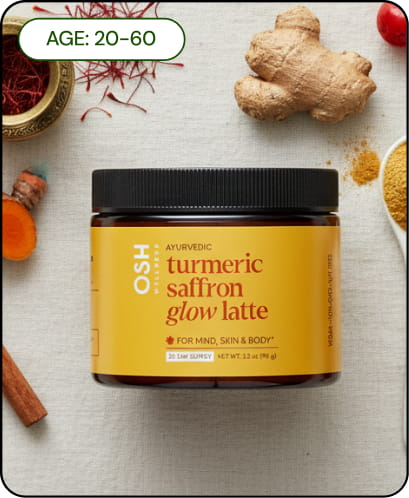Table of contents
The connection between gut health and immunity is critical, especially in today's health-conscious world. Recent research highlights the significant influence of the gut microbiome on immune responses. Ayurveda, with its holistic outlook, offers profound insights into maintaining digestive health as a cornerstone of wellness. This article explores key Ayurvedic principles to support a balanced gut and enhance immune strength with practical, natural solutions.
Understanding Immunity and Gut Health

The gut microbiome plays a foundational role in regulating immunity and sustaining overall health. Approximately 70% of the immune system resides in the gut, where immune cells constantly interact with a diverse microbial community comprising bacteria, fungi, and other microorganisms. This lifelong relationship is vital for the immune system's education and regulation, directing the body's responses to external and internal stimuli through microbial metabolites that influence both local and systemic immunity [1].
Maintaining the integrity of the gut barrier is essential for effective immune response. The microbiome supports the structure of tight junctions in the intestinal lining, preventing the intrusion of pathogens and toxins. A compromised barrier can initiate immune overreactions and foster disease. In addition, beneficial or “commensal” bacteria help protect the body by outcompeting pathogens and releasing antimicrobial compounds [2].
Diet plays a powerful role as well. A fiber-rich diet with diverse plant sources promotes microbial diversity and reduces inflammation. In contrast, diets high in processed foods and sugar may diminish microbiota diversity and increase chronic inflammation [3]. Early life gut colonization is also vital. Studies on germ-free animals show that lacking microbiota during development can weaken immune responses and raise susceptibility to infections [4].
Principles of Ayurveda in Modern Health

Ayurveda, meaning "science of life," takes a holistic approach by integrating physical, mental, and spiritual wellness. Two essential Ayurvedic principles, Agni (digestive fire) and Doshas (body humors), offer time-tested guidance for enhancing immunity.
Agni governs digestion, metabolism, and energy conversion. A balanced digestive fire metabolizes nutrients efficiently and eliminates toxins, forming “Ojas,” a substance linked to vitality and disease resistance. An impaired Agni results in "Ama" (toxins), leading to illness and diminished immune strength [5].
Vata types often need warming, grounding foods to support sluggish digestion.
Pitta individuals typically have strong digestion but should avoid overheating foods that induce inflammation.
Kapha types benefit from light, spicy foods to balance slow digestion [6].
In today’s world, where chronic diseases and stress-related conditions are rampant, Ayurveda offers adaptive strategies that integrate customized diets, natural herbs, and longevity-promoting practices like yoga and meditation. The Ayurvedic concept of Vyadhikshamatva (immunity) centers on harmonizing Doshas and Agni to build resilience against diseases [7].
Nourishing the Digestive Fire

Agni signifies much more than digestion; it powers energy production, cognition, and emotional balance. A healthy Agni breaks down food effectively, facilitates nutrient absorption, and strengthens the immune system. Conversely, a weak or erratic digestive fire allows Ama (toxins) to accumulate, impairing immunity and overall wellness [8].
To support Agni:
Choose light, warm, and freshly cooked meals to promote easy digestion.
Avoid cold, oily, or heavily processed foods that suppress digestive function [9].
Use spices like ginger, cumin, coriander, and turmeric to naturally stimulate Agni.
Mindful eating enhances digestion:
Eat at regular times daily.
Chew food thoroughly and eat in a peaceful environment.
Only eat when truly hungry to prevent toxin buildup [10].
Immune-Boosting Herbs and Foods

Certain Ayurvedic herbs and foods are well-researched for their effects on gut health and immunity. Regular inclusion of the following can significantly enhance your body’s natural defenses:
Amla (Indian Gooseberry): High in vitamin C and antioxidants, it supports antibody production and promotes a healthy gut flora [11].
Turmeric: Curcumin, its active compound, reduces gut inflammation and supports systemic immunity. Turmeric can be consumed in teas or meals for daily antioxidant support [12].
Ginger: Known for relieving indigestion, nausea, and bloating, ginger also offers antimicrobial and anti-inflammatory benefits that enhance gut integrity [13].
Blending Amla, Turmeric, and Ginger into a tonic or tea creates a synergistic immune-enhancing elixir that can be enjoyed daily [14].
The Role of Probiotics and Fermented Foods

Modern research confirms the value of probiotics, prebiotics, and fermented foods, principles closely aligned with Ayurvedic dietary teachings. A Stanford University study showed that a 10-week fermented food diet enhanced microbiome diversity and reduced inflammation markers such as interleukin-6 [15].
Probiotics positively impact immunity by:
Modulating cytokine responses
Supporting gut barrier function
Producing immune-supporting short-chain fatty acids [16]
Ayurveda recommends fermented foods like yogurt and peya (fermented rice water) for improving Agni and Ojas. These foods contain beneficial bacteria such as Lactobacillus and Bifidobacteria that assist digestion and inhibit pathogens [17]. Also, bioactive compounds formed during fermentation further protect against inflammation and allergies [18].
Establishing a Balanced Lifestyle for Immunity

Ayurveda teaches that a balanced, intentional lifestyle is essential for aligning digestion and immunity. Begin by cultivating the following habits:
Eat mindfully: Focus on meals without distractions, eat on a schedule, and chew thoroughly for optimal digestion [19].
Get restorative sleep: Sleep before 10 PM and develop a calming bedtime routine to regulate circadian rhythms and bolster immunity [20].
Practice yoga and meditation: Gentle movement enhances digestion and lymphatic function, while breathwork and mindfulness reduce stress-related immune disruption [21].
Detox regularly: Panchakarma and other Ayurvedic purification techniques help remove toxins and reset gut balance [22].
Relevant Products
Discover Osh Wellness products carefully formulated to support gut health. Our herbal supplements and digestive aids are inspired by Ayurvedic wisdom and offer natural solutions to enhance immunity and vitality. Explore our range to find products tailored to your health journey.
Conclusions

In conclusion, gut health and immune function are profoundly intertwined. By following Ayurvedic principles that emphasize nurturing the digestive fire, integrating immunity-boosting herbs, and cultivating mindful lifestyle habits, individuals can naturally strengthen their immune system.
FAQs
What Ayurvedic practices can I start doing immediately to improve gut health?
Begin with warm, freshly prepared meals, morning herbal teas, and 15 minutes of breathwork.
How do I incorporate probiotics into my diet?
Add yogurt, pickled vegetables, or fermented rice water prepared at home.
Are there any contraindications with Ayurvedic herbs?
Always consult an Ayurvedic practitioner if pregnant, breastfeeding, or taking medication.
How can I know my dosha type?
You can take a dosha quiz online or consult a qualified Ayurvedic practitioner for a full assessment.
How often should I detox according to Ayurvedic principles?
Seasonal cleanses, especially at the junction of seasons, are traditionally recommended.
Sources
1: Frontiers in Microbiology - The Gut Microbiota and Immune System
2: Seed - The Gut-Immune Connection
3: UCLA Health - Want to Boost Immunity? Look to the Gut
4: PMC - Role of the Gut Microbiome in Human Health
5: World Journal of Pharmaceutical Research - Principles of Ayurvedic Medicine
6: Art of Living Retreat Center - Ayurveda: Modern Relevance of Ancient Medicine
7: NCBI - Ayurveda: A Therapeutic Perspective
8: One World Ayurveda - Digestive Fire in Ayurveda
9: San Diego Ayurveda Healing - Foundations of Agni in Ayurveda
10: Athreya Herbs - Digestive Fire (Agni): All Concepts You Need to Know
11: PMC - Nutritional Supplements and Herbs for Immune Support
12: Hindustan Times - Amla, Ginger, Turmeric Tonic Benefits
13: 1mg - 6 Ayurvedic Herbs to Enhance Your Immunity
14: Times of India - Benefits of Amla, Ginger, and Turmeric Shot
15: Stanford University - Fermented Food Diet and Immune Health
16: NIH - Probiotics and Immune Health
17: Gutxy - Best Gut-Healing Foods in Ayurveda
18: NIH - The Mechanisms of Probiotic Action
19: Integrative Nutrition - An Ayurvedic Approach to Gut Health
20: Amaltamara - Fortify Your Immunity with Ayurveda
21: Ayurvedagram Bali - Gut Health and Ayurveda
22: Jogi Ayurveda - Ayurveda Heals IBS and Restores Gut Balance








